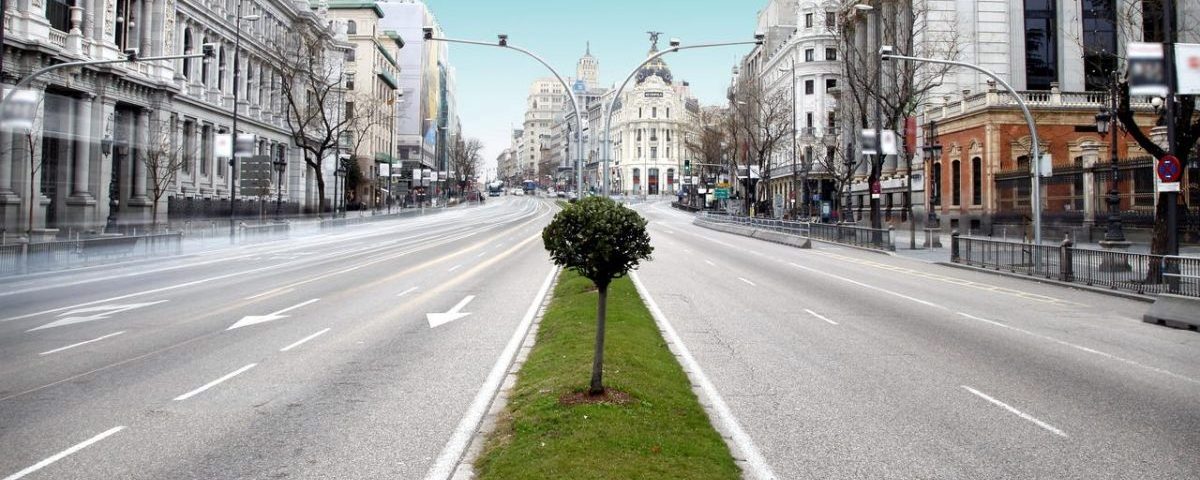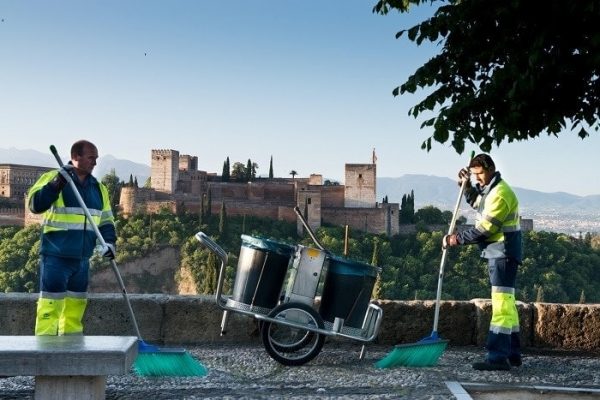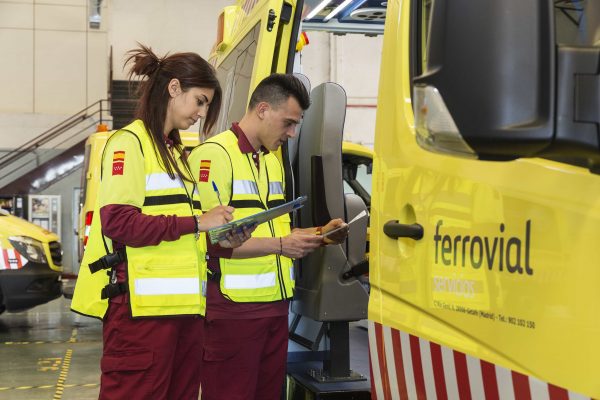
After more than 40 days of lockdown, the prodigious sacrifices made by our health workers day after day as they tackle the COVID-19 outbreak makes them a model for managing our society’s future. We cannot thank them enough for their bravery and service in overcoming the disease.
But we must also recognise the unwavering commitment, dedication and efforts of thousands of other workers from a range of different spheres who daily provide their services in hospitals and supermarkets and those who guarantee our safety and keep our streets clean and free of waste; those who step out of their homes so that the rest of us can comply with the lockdown and halt the spread of the virus.
Some of these jobs, such as cleaning and disinfection in cities and waste collection, are being carried out by workers who have been made visible by the current situation, and who have earned the affection and applause of their fellow citizens from their windows.

This colossal effort, that benefits all citizens, especially the most vulnerable ones, deserves recognition; we are proud of our colleagues, as people and as professionals. When all this is over, we will be immensely grateful to all of them, particularly those who have been on the front line, and I would like to be sure that they are not forgotten.
Among those thousands of highly committed professionals are the employees of Ferrovial Services, who are working tirelessly to enable us to overcome this epidemic. On the front lines in the fight against COVID-19, we have intensified our support to all those involved, in all the spheres in which we provide our services, and especially in cities, to protect residents. That’s why it is crucial that no-one should be overwhelmed by the scale of this huge problem. Quite the contrary: we have chosen actively to be a part of the solution, because there are many ways to help.

We are experiencing a situation that has disrupted our society globally and that will, without doubt, shape future generations. We have never experienced anything like it and neither have our children, in particular, who will soon be called upon to lead a world that must necessarily change for the better. They must be able to adapt to crises and complex situations.
Many people are suffering directly or indirectly from the disease itself and from the loss of loved ones. In addition to this anguish is the vast uncertainty that will be created by the economic crisis stemming from the health emergency. That’s why we must be aware of the situation we will face once we beat the virus and return to our jobs and businesses as normal. In short, when we get our lives back.
Confinement has given us time to reflect on the mistakes that we, as human beings, have made over time and over the course of our own existence. These mistakes have a great deal to do with our approach to the world around us, to the most vulnerable people, and with deep-rooted habits that have been maintained despite the passage of the centuries. This reflection must help us to adapt to this new situation as soon as possible. We must generate incentives to improve efficacy and productivity. We cannot just let ourselves be swept along by the circumstances and hope that everything will return to normal without taking any action. We have already shown considerable capacity during past crises, and we will indisputably overcome this test, too.
I would like to share some thoughts about this:
The first, in connection with what I have already said, has to do with the degree of commitment and engagement on the part of healthcare professionals in Spain. This also applies to the rest of workers from other sectors who been tireless and relentless in their efforts to tackle the situation. The pandemic has brought out the best in us, including strong evidence of solidarity, among both those who are staying at home and those who cannot.
The second reflection relates to the way we work. We switched successfully, and practically overnight, to teleworking, despite the lack of prior experience; it will almost certainly become the norm in the future. Distance is irrelevant today, because technology enables us to stay connected and keep things running smoothly.

The third is more of an existential reflection: how everything can change in a matter of seconds. The insignificance of human beings in the world. On 22 April we celebrated Earth Day. Now, more than ever, I think every day should be Earth Day. In these times of pandemic, perhaps we should seriously consider how the mistreatment of our planet is also taking its toll in the form of a virus. And the virus has decided to keep us confined so that we can reflect on the impact of what we do. Just think about the images we have seen comparing cities before and after the lockdowns.
This might be a good time to take stock, once and for all, of the need to tackle climate change caused by pollution in our cities and seas, or to recognise the crucial importance of respecting and conserving Earth’s biodiversity and the interdependence between its ecosystems and all living things, including, evidently, human beings. We cannot survive without the planet.
The good news amidst all the adversity is that the future is in our hands and we have a magnificent opportunity to learn from our mistakes so as to avoid repeating them. Also, what we learn from this experience will make us more aware that the equilibrium is more fragile than we think. This will be our main mission once we have overcome the virus all together and return to living beyond the four walls of our homes.





There are no comments yet